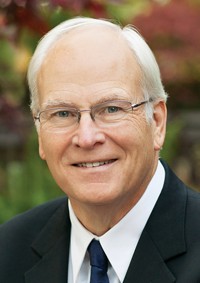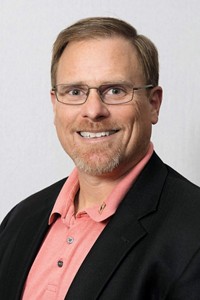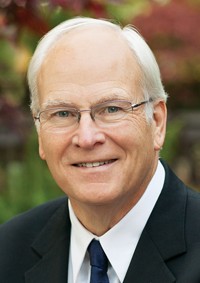Advertisement
Grab your lab coat. Let's get started
Welcome!
Welcome!
Create an account below to get 6 C&EN articles per month, receive newsletters and more - all free.
It seems this is your first time logging in online. Please enter the following information to continue.
As an ACS member you automatically get access to this site. All we need is few more details to create your reading experience.
Not you? Sign in with a different account.
Not you? Sign in with a different account.
ERROR 1
ERROR 1
ERROR 2
ERROR 2
ERROR 2
ERROR 2
ERROR 2
Password and Confirm password must match.
If you have an ACS member number, please enter it here so we can link this account to your membership. (optional)
ERROR 2
ACS values your privacy. By submitting your information, you are gaining access to C&EN and subscribing to our weekly newsletter. We use the information you provide to make your reading experience better, and we will never sell your data to third party members.
Policy
Advocacy Moments Of Truth: Let’s Change Our Tactics
by Kathleen M. Schulz, Director At-Large
April 7, 2014
| A version of this story appeared in
Volume 92, Issue 14
I believe this is a moment of truth for American Chemical Society advocacy—not only for individual members but also for the society itself. Science has a critical role in solving the world’s important challenges, yet paralyzing dysfunction in our nation’s capital jeopardizes our ability to respond to those challenges. Appreciation of the value of science, and funding for science from education to R&D, is in short supply these days. Even formerly bipartisan issues are now contentious! I believe these critical times demand a new advocacy strategy.
What can ACS do? Obviously, we must continue to advocate for science, but how can we be more effective in the current environment?
My suggestion: Continue our usual federal advocacy efforts, but recognize that they are “necessary but not sufficient.” Let’s increase our advocacy activity at local and state levels where many important decisions, particularly about science education, are now being made. Here, in town halls and other venues far from the poisonous Beltway atmosphere, it is easier to be heard, including by our congressional representatives.
Let’s take the long view, build strong relationships with policymakers at all levels, and help figure out how to grapple with debt and deficit constraints without sacrificing the critical investment in R&D and science education that fuels U.S. innovation, job creation, and economic growth.
As individuals, what should we do? Whether you’re already advocating for science or just now considering it, I ask you first to stop and reflect. Engage in a personal moment of truth. Ask yourself, “Am I comfortable not being part of this critical conversation? Have my advocacy efforts been effective? What’s worked, or hasn’t? Would a different approach be more successful?” Often we are so busy doing that we don’t stop and ask the questions that are critical to success.
Margaret J. Wheatley, an expert on organizational and personal effectiveness, counsels that quiet moments of reflection are essential to success because they are the creative place where we can choose to do things differently.
In that vein, I ask you to step up your advocacy efforts and try new approaches such as the following: Reflect, Organize, Act.
REFLECT. On whom do you want to focus your advocacy efforts—neighbors, local and state leaders, federal lawmakers, someone else? And what do you want to advocate for—more support for science education, funding for R&D, something else? Choose something you’re passionate about. It will be more fun and energizing, you’ll know it’s worth your time, and you’ll be more successful!
ORGANIZE. Next, build your advocacy “tribe.” By joining others, you build your own personal community, which can serve as a sounding board and provide encouragement and support. Your tribe may be local or national, face-to-face or online, but it should be a group that can help you reflect, learn from the things you try, and improve your advocacy effectiveness. Wheatley says we do not spend enough time reflecting and learning together. Thus, we limit the number of ideas or experiments we try, often missing something altogether or duplicating others’ efforts.
To start building your advocacy community, consider contacting these people and groups within ACS: your local public relations or government affairs chair or the ACS Office of Public Affairs. These contacts can help you find out about regional and national ACS groups, such as regional Government Affairs Committees, graduates of Sparkle public relations training workshops, Chemistry Ambassadors, and others.
You might also look to other volunteer groups, teachers’ organizations, or other business or professional groups that share your interest in advocating to legislators or the public.
ACT. In a previous job, I helped executives with extremely challenging work—leading change in large, complex organizations. On especially frustrating days, we coped by decisively closing the door, exchanging “the look,” taking a deep breath, and saying: “Doooo something!” No matter how elusive success may seem, we all have one last moment of truth: deciding whether to “doooo something!”
In advocacy for chemistry, I ask you to decide to do something—and to try doing it differently. For example, try visualizing the person you want to influence. Visualize a day in their life: their world, their frustrations, hopes, and fears. Then ask: “How will my words sound to them? How can I be relevant and compelling? How can I translate the importance of funding science, or science education, to something they care deeply about?” Then try something, perhaps something different.
This is a critical time in science advocacy. The stakes are very high, and the environment has changed. I ask you to Reflect, Organize (particularly in your state and local areas), and Act to ensure a brighter future for chemistry and chemical professionals.
Views expressed on this page are those of the author and not necessarily those of ACS.






Join the conversation
Contact the reporter
Submit a Letter to the Editor for publication
Engage with us on Twitter